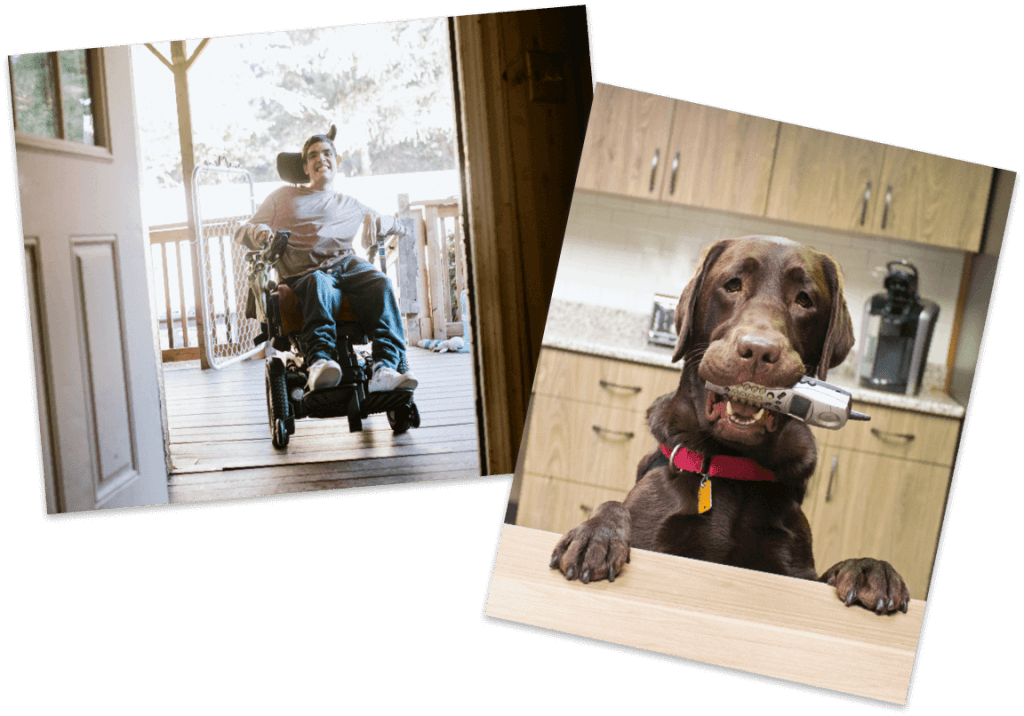As we age, our minds and bodies undergo a wide variety of mental, emotional, and physical changes. While some aspects of life may become more difficult, active living for older adults is still well within reach. In this guide to healthy living for seniors, we’ll explore the many ways you can live a full, satisfying life well into your golden years.
Get Lots of Physical Exercise
Physical exercise is important at any age, but it becomes even more essential as we grow older. In fact, experts recommend that seniors get a minimum of 30 minutes of exercise, 3-5 times a week. When selecting an exercise program, be sure to consult with your physician and start small. Choose something you enjoy, and consider joining a class or exercising with others to stay motivated.
Benefits of Exercise for Seniors
There are many benefits of active living for older adults, including allowing you to retain more of your independence. Physical exercise is also proven to:
- Reduce or alleviate feelings of anxiety, depression, and stress
- Boost the immune system to help prevent or control illnesses
- Improve cognitive functioning and prevent memory loss
- Help reduce chronic pain
- Improve metabolism
- Maintain organ function longer
- Help manage some chronic diseases (e.g. diabetes, hypertension, high cholesterol, heart disease, certain cancers, etc.)
- Boost sleep quality
- Improve flexibility, balance, posture, and strength
- Promote good cardiovascular health
- Help maintain a healthy weight or facilitate weight loss
Best Types of Exercise for Seniors
While there are a wide range of physical activities that are appropriate for seniors, here are some of the most effective:
- Chair yoga. This low-impact exercise is accessible for seniors and proven to improve flexibility, balance, mobility, and strength. It’s also shown to boost mental health and promote better sleep.
- Pilates. Another low-impact exercise, pilates helps build strength and is shown to improve balance and flexibility.
- Walking. Walking 10,000 steps a day lowers your risk of heart disease, stroke, colon cancer, and diabetes. If you have joint pain or difficulty walking, you can lower your step count accordingly.
- Water aerobics. Exercising in water puts less stress on joints, which is beneficial for those with arthritis. Plus, the natural resistance of water improves balance, strength, and flexibility.
- Body weight and resistance band workouts. Body weight exercises help counteract muscle atrophy, which can lead to hormonal imbalances. You can also incorporate resistance band workouts to strengthen your core for better flexibility and balance.
Pay Attention to Nutrition
When it comes to healthy living for seniors, eating a balanced diet of nutritious foods goes hand-in-hand with exercising regularly. As we age, our digestive system and metabolism slow down. Choosing nutritious foods keeps your energy levels up and can lower your risk of chronic conditions, like heart disease, hypertension, and diabetes.

Tips to Support Proper Nutrition in Seniors
There are a variety of ways to support a healthy diet as you age. Here are a few of our favorite tips when it comes to nutrition, aging, and lifestyle:
- Always read nutrition facts labels and pay attention to serving sizes
- Eat slowly and take small bites to promote better digestion
- Take mineral and vitamin supplements, like iron and vitamin D
- Drink plenty of water to stay energized and hydrated
- Eat with other people to encourage regular meals
- Limit alcohol consumption to only one drink a day
- Avoid foods with empty calories, like junk food and soda
- Take probiotics for enhanced immunity and reduced constipation

UDS Can Help You Live A Fuller Life With Our Comprehensive Services:
Planning & Support – Our dedicated planning & support teams help manage the care and services you need.
Personal Care & Independence – We’ve helped people with disabilities live more independently in their own homes since 1965.
Enrichment & Life Skills – Our variety of programs is dedicated to building skills for living well with a disability.
Best Foods for Senior Metabolisms
Not sure where to get started when it comes to choosing the best foods for slow senior metabolisms? The list below will get you on the right track:
- Beans, broccoli, artichokes, raspberries, avocados, Brussels sprouts, whole wheat pasta, and oatmeal all contain high levels of fiber, which help accelerate digestion.
- Unsalted nuts, oats, brown rice, dried beans, and a variety of fresh and frozen fruits all contain low amounts of sodium, which helps avoid hypertension.
- Fish, nuts, flax seed, chia seed, eggs, and spinach all contain omega-3 fatty acids, which decrease the chances of heart disease and stroke and boost overall brain function.
Don’t Neglect Your Mental Health
Along with your physical wellbeing, healthy living for seniors includes nurturing good mental health. Stimulating the mind and engaging with the world around you can help delay or avoid dementia and Alzheimer’s. And staying mentally active can also help you manage the effects of stress and anxiety.
Activities to Improve Mental Health in Seniors
Here are a few fun ways you can stimulate your mind and maintain good mental health as you age:
- Playing games (e.g. word games, board games, educational video games)
- Doing crossword puzzles
- Learning a new language
- Learning a new skill
- Reading
- Writing
In the era of COVID-19, it’s more important than ever to maintain relationships with family and friends to avoid feelings of isolation and depression. However, it’s crucial to do so in a way that maintains your safety, especially as a member of a vulnerable population. We’ll explore how to do so in the next section.
Socialize with Friends, Family, & Neighbors
Staying connected with family, friends, and your larger community is another key facet of healthy living for seniors. There are many benefits to socialization, including a more positive mood and increased physical activity.
You can visit with loved ones in person, or use apps like Skype, Zoom and FaceTime to communicate virtually. Social media, letters, texting, and phone calls are also great ways to correspond with friends, family, and neighbors.

As we continue to weather the COVID-19 pandemic, it’s crucial that you interact with friends and family in a safe manner. Stick with the virtual platforms mentioned above, rather than in-person meetings. These communication methods are especially useful if you live in a retirement community, where visitation may currently be limited or forbidden.
Along with maintaining existing relationships, you can make new friends by volunteering for an organization or cause. You could also take classes, join a club based on one of your interests, or get active in a neighborhood association.
Get Plenty of Sleep
As we age, our bodies experience a decrease in slow wave (or deep) sleep and, as a result, produce less melatonin. This can lead to insomnia and frequent waking throughout the night. However, getting enough sleep:
- Improves concentration and memory formation
- Helps the body repair any cell damage from the day
- Revitalizes the immune system to help stave off disease
Adults aged 65+ should get at least 7-8 hours of sleep each night. A lack of sleep in seniors can lead to:
- Memory and attention problems
- Nighttime falls
- Depression and anxiety
- Excessive sleepiness during the day
- Increased risk of cardiovascular disease, diabetes, and weight issues
Reasons Why Seniors Don’t Get Enough Sleep
There are a variety of reasons why many seniors frequently don’t get enough sleep. These include (but are not limited to) the following:
- Lack of exercise
- Medication side effects
- Sleep disorders (snoring, sleep apnea, restless legs syndrome, etc.)
- Stress or anxiety
- Chronic pain
- Certain medical conditions (arthritis, asthma, diabetes, etc.)
- Irregular sleep hours
- Uncomfortable sleep environment
Tips for Getting More Sleep
If you’re unhappy with the amount or quality of sleep you get, don’t worry. The tips below can help you fall asleep faster and stay asleep longer:
- Ensure your bedroom is quiet and cool
- Don’t watch TV or read from a backlit device at night (e.g. tablet, smartphone, etc.)
- Keep a consistent sleep schedule
- Practice relaxing bedtime rituals (e.g. taking a bath or listening to quiet music)
- Minimize liquid intake before bed
- Limit caffeine intake late in the day
- Avoid using sleep aids and sleeping pills
- Exercise a few hours before bed
Visit the Doctor Regularly
Regular check-ups with your primary care doctor help you diagnose and treat health problems as quickly as possible. Doctors recommend a wellness visit every two years for older adults, which includes a basic check-up and an assessment of your overall health. Your doctor may also take a blood pressure reading and perform hearing or vision tests, depending on your individual needs.

If you’re a Medicare recipient, you’re entitled to a free “Welcome to Medicare” visit when you enroll. Additionally, Medicare members receive one free wellness visit each year with no copay or deductible through Medicare Part B.
Regular trips to eye doctors and dentists are also crucial to healthy living for seniors. Have your eyes screened for problems on a regular basis, and check your glasses or contacts prescription every year. You should also make sure to visit the dentist every six months to avoid cavities and mouth infections that can influence health conditions like diabetes and heart disease.
Take Advantage Of Preventative Care
When you visit your primary care doctor or specialist, be sure to take advantage of any preventative care they may offer. This may include tests, screenings, vaccinations, and other preventative measures. Most importantly, pay attention to any changes in your body and see a doctor as soon as possible if something seems wrong.
Preventative Care Essentials
Wondering how to stay healthy after 65? Here are a few of the most important steps you can take to feel good for as long as possible:
- Get annual flu and pneumonia vaccinations
- Have your cholesterol checked every five years
- If you’re a woman, get a Pap test every five years and a mammogram every 1-2 years
- Get a tetanus-diphtheria vaccination every 10 years
- Get a one-time shingles vaccination
- If you’re a woman, get a bone density scan
- Get a colonoscopy every 10 years